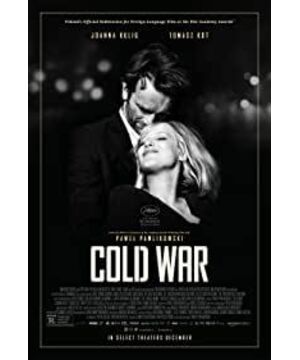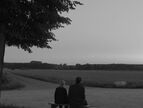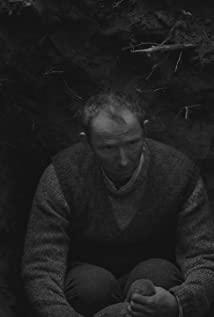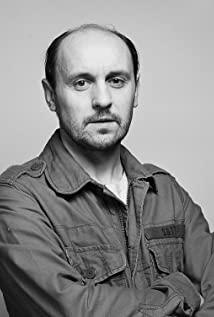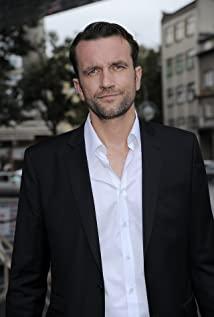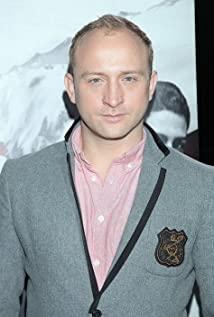"Forgive me for not wanting you to see them getting old. They are all gone and beyond recognition."
Xiao Suizi said in "Youth". The story of "Youth", in my eyes, is a story of an extremely kind individual who bears a tragic fate innocently, and an ordinary girl who resolutely dances to resist all kinds of malice. From this level, the collective malice grows recklessly, and the kindness is completely let down. "Youth" is like a human tragedy.
The film "Cold War" (Zimna wojna) directed by Paviu Pawlikowski was called "the Polish version of "Youth" by domestic film and television people. In the works, there is also a sighing tragedy.
I will try to explain the tragic color of the overflowing works from three levels.
The level of historical context
"Cold War" seems to place the audience in the time corridor of a beautiful palace. Time nodes such as "Poland in 1949", "Paris in 1954", "Yugoslavia in 1955" and so on clearly divide the corridor into independent and unique the associated room. Poland in 1949 is the narrative starting point of the story.
No matter what genre a film belongs to, or how it is characterized, it must rely on a certain historical context. The world and social laws that the film constructs are real, and convincing the audience of this is especially important for realist works.
In March 1947, the introduction of the Truman Doctrine marked the beginning of the Cold War. The socialist camp and the capitalist camp launched a protracted confrontation, and Poland naturally joined the confrontation. In 1949, the male protagonist Viktor and his colleagues came to a village in Poland to select suitable singers to form a literary and artistic organization similar to the "Art Troupe" serving politics. So he met the passionate and innocent heroine Zura. Zula chose a pure and moving folk song during the selection, and the sweet singing tapped Victor's heartstrings.
And when the art troupe solemnly performed under Stalin's posters, the politicization killed the former folk songs, forcing countless mouthpieces to sing praises for agricultural cooperation and socialism, and worship the great Stalin. One of the girls in the art troupe disappeared from the picture after she opposed the over-politicization of literature and art.
While these politically charged images make up a small portion of the entire 84-minute film, it's not hard to see director Paviu Pawlikowski's critique of cultural tyranny in the context of the Cold War.
When it comes to how the author expresses his critique of reality, I think it is achieved through pictures and colors. Using black and white tones and a 4:3 aspect ratio, the film is a throwback to real-life scenes from the 1950s. At the same time, this black and white tone also has a serious effect. The movement of the camera is only slight throughout the frame, which may give the viewer the illusion of relative stillness. This feeling of stillness or even stagnation was in line with the rigid political situation in Poland at that time.
The level of love context
Victor is deeply attracted to Zula, who can't help but fall in love. They embraced warmly and rejoiced to the fullest. No matter how cold and severe the situation was, they could not stop the two hearts from loving each other. Victor, an idealistic intellectual, could not stand the political kidnapping of pure folk songs, so he and Zula negotiated to escape during a performance. However, for Zula, a young girl who grew up in the countryside and had an unfortunate family, she did not have such a lofty ideal of life and spiritual awareness. To her, there was not much difference between praising the great and praising herself. There is no reason to escape.
The love between the two also seems to have fallen into a "cold war" situation after Zura broke the Berlin pact between them. Poland and Paris, rigid and unrestrained, two completely different cities under the same time and space background. The nightly sing-along in the jazz club is far from the step-by-step theatrical performances. Victor is busy writing his inner creation and going to banquets to develop interpersonal relationships. This is an intellectual's effort to improve his social class status. They meet occasionally, in the splendid midnight city of Paris. The love between them that had almost cooled to freezing rekindled.
When the picture of the film arrives here, the audience can clearly feel the movement of the camera and the unique depth of the movie it brings, as if the whole picture is lively. The color tone of the picture also maintains a high saturation for a period of time. These all seem to be the characters who give the camera a deep feeling.
Zula escaped Poland by marrying, and finally held a simple wedding ceremony with Victor.
The world prefers happy endings. No matter how many years the protagonists have drifted apart, or irreversible consequences, as long as they can stay together for the rest of their lives in the end, they can give the audience great spiritual comfort. The recipient groups of film works want to escape from the world, and use this short escape to give their minds a moment of rest. In a sense, the film work, and the construction of its happy ending, is a sanctuary for the disappointment of the audience's life.
However, behind this so-called happy ending, in my opinion, is actually another continuation of tragedy.
At the end of the film, Victor and Zura sit together on a park bench. They have experienced a magnificent period of time, and many times of ins and outs have left the two free and fresh souls scarred. In the end, they chose to stay away from the world. In fact, the union of this love is not the union of two compatible souls. Just like Zula at that time, he would not agree with Victor's practice of making Zula's past public in order to be famous. Zura and Victor still failed to integrate each other's thoughts, which was not the most perfect love.
Similarly, in the last scene of "Youth", the dim background color wraps Liu Feng and He Xiaoping on the bench. . This is also a compromise chosen after being tortured by the times.
Third, the subject level
Paviu Pawlikowski, as a cutting-edge director in the film industry, only brought his new work "Cold War" five years after he became famous with "Nun Ida". He spent five years dissecting himself. Audiences may be able to get a glimpse of Paviu Pawlikowski's inner world through "Cold War", which is only 84 minutes long.
"Go over there, the scenery is better over there." Paviu Pawlikowski uses the character's mouth and the character's ending to observe his ideal of life - to be away from the world.
Victor spoke out about Zura's past in order to become famous. "Here, that's how things work," he says. It can be seen from this that the ardent and absurd pursuit of fame and fortune in the capitalist society comes to the fore. When Paviu Pawlikowski described this background story with the Cold War as its background, he clearly expressed his disappointment with the secular world.
Ancient Chinese literati also had such a seclusion plot, whether it was the rural life of "picking chrysanthemums under the eastern fence and seeing the Nanshan leisurely" or the rafting of "the mighty universe and a small boat", they were unable to withstand the strife of the world and turned to nature to seek Consolation, in order to achieve the highest state of the unity of things and me.
For this reason, Paviu Pawlikowski abandoned the grand narrative in the narrative mode, and focused on the joys and sorrows and individual needs of small people.
At the same time, "Cold War" also adopts relatively independent segments, and even some are similar to multi-act dramas, and the time and place will be explained before each episode of the drama. This maverick narrative method is more like the thinking orientation of Paviu Pawlikowski. Human thinking is intermittent and jumping. In the human mind, linear time no longer exists, and every fragment of the past can be combined at will. Therefore, some people joke that "Cold War" is actually an excellent ppt movie. Although this statement is somewhat reasonable, it is generally biased.
In addition, beyond these three dimensions, the one thing that impressed me about director Paviu Pawlikowski is that he handled the fiction and reality of the film very well. Although this story is based on the love of parents, it is not easy to be moved by love eagerly.
As early as 1916, the famous German psychologist Hugo Munsterberg pointed out in "Film: A Psychological Study": "The mechanical reproduction of reality cannot become true art."
The movie screen is a two-dimensional plane, but the audience is in a three-dimensional space when watching it. The movement of the film gives the audience a strong sense of depth, which provides very convenient conditions for the generation of the audience's emotions.
Authors can deliberately reveal emotions (melancholy, anger, joy, etc.) in their works, and express emotions through intuitive media such as character lines, facial expressions, and tone of speech, which is certainly a way. This method is very common. Most filmmakers believe that the photographic image is just an intermediary without belief, and the perception of belief needs to be conveyed by other means. But the artist believes that there is a higher form, a work of art, that can have an expressive nature without the artist's prior expressive act. All the tools used do not touch the deep emotions, but the emotions are there. This is the effect of "drinking is not intoxicating and people are self-intoxicating". "Cold War" seems to have achieved the unity of these two states.
I once read about the interesting phenomenon of the "fictional paradox" in a book. The paradox of fiction means: as the recipient, the world he perceives the work wants to construct is fiction, and on the basis of recognizing this, he will still irresistibly put into passionate emotion. This requires a perfect blend of fiction and reality, and director Pawlikowski did it.
View more about Cold War reviews


